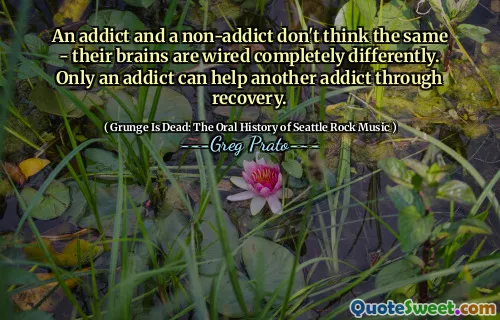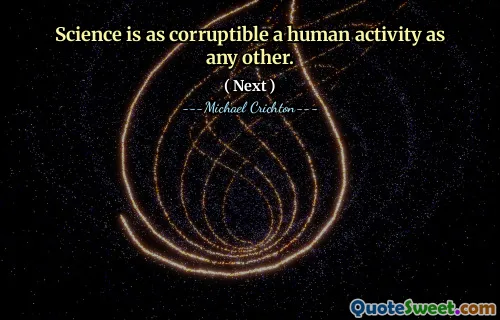
An addict and a non-addict don't think the same - their brains are wired completely differently. Only an addict can help another addict through recovery.
This quote highlights the profound neurological and psychological differences between addicts and non-addicts. Understanding that addiction isn't merely a matter of choice or moral failing, but rather a condition rooted in the brain's wiring, fosters empathy and more effective intervention strategies. Recognizing that an addict's brain processes cravings, reward, and compulsion differently emphasizes the importance of peer support in recovery. When someone who has experienced addiction offers guidance, it carries a unique weight because they comprehend the struggles from within, not just theoretically but experientially. This perspective can inspire more compassionate approaches within treatment programs, focusing on shared understanding rather than judgment.
Moreover, the quote suggests the importance of tailored approaches to recovery—interventions that consider the neurobiological aspects of addiction. Replicating the support systems among addicts themselves might provide more meaningful help, as recovery isn't just about abstaining from substances but rewiring the brain's pathways through sustained effort and support.
It also raises awareness about stigmatization. Viewing addiction as a brain wiring issue rather than a moral flaw can reduce shame and guilt associated with addiction, encouraging more individuals to seek help. Ultimately, this quote underscores the importance of empathy, peer support, and science-based approaches in addiction recovery—reminding us that understanding the neurological foundation is key to effective treatment and compassion.
In the context of societal efforts to combat addiction, it emphasizes that treatment should be compassionate, personalized, and rooted in understanding, acknowledging the intricate differences in how brains function due to addiction. Such insights guide us toward more humane and effective strategies that can foster true recovery and reintegration into society.


